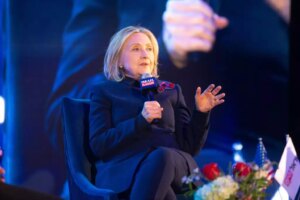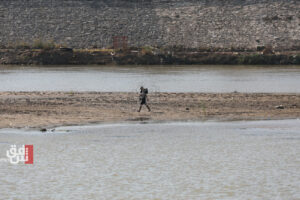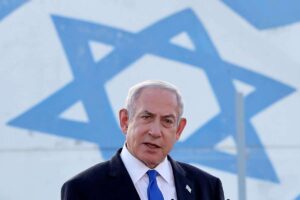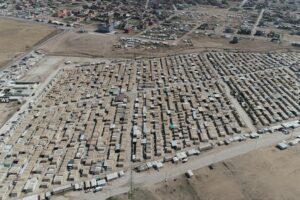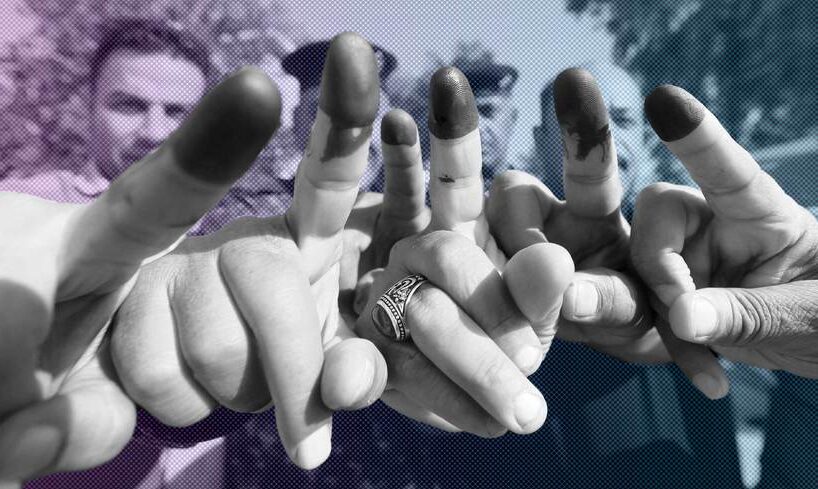
2025-10-17T22:24:30+00:00
font
Enable Reading Mode
A-
A
A+
Shafaq News
The digital
sphere has become a defining force in Iraq’s upcoming parliamentary elections,
turning social media platforms into the primary stage for political
competition.
With over 34
million Iraqis active online—roughly 74% of the population—campaigns are
shifting from traditional rallies and posters to targeted digital messaging,
reshaping how candidates reach and influence voters ahead of the November vote.
Political
parties and individual candidates are investing heavily in their online
presence, treating it not as a complement but as a core strategy. Content
tailored to platform algorithms now determines visibility and reach, especially
among younger voters who consume most of their political content through mobile
screens rather than television or newspapers.
According to
the Digital Media Center (DMC), this surge in online engagement offers
unprecedented opportunities—but also opens the door to manipulation, legal
gaps, and social tension.
The
Double-Edged Nature of Digital Campaigns
Baghdad
Provincial Council member and parliamentary candidate Amer Shouhan al-Faili
described social media as “a double-edged sword for electoral propaganda.”
While these platforms allow for fast, direct communication, he warned of their
misuse for “illegitimate political defamation.”
In a
statement to Shafaq News, al-Faili noted that digital campaigning offers an
ideal channel for outreach, but its unregulated nature makes it vulnerable to
exploitation.
Political
analyst Ahmed Youssef pointed to the growing influence of online campaigns over
traditional methods, crediting their speed and interactivity. Yet he also
cautioned that some actors use these tools to spread false information,
misleading voters in the process.
“The
Electoral Commission must widen its supervision to include digital platforms,
not just physical campaign spaces,” Youssef told Shafaq News.
The official
campaign period, which began on October 3, runs until one day before special
voting. The Iraqi government has scheduled general elections for November 11,
2025, marking the sixth parliamentary cycle under the post-2003 political
system.
Beyond
Visibility: Message Credibility Matters
Kurdish
Faili politician and candidate Haider Hisham believes the impact of digital
campaigns depends not only on visibility, but on the credibility of the message
itself.
“Digital
outreach can shift public opinion,” Hisham told Shafaq News, “but only if it
offers realistic and trustworthy programs—not empty promises.”
Legal expert
Mohammed Jumaa raised concerns about Iraq’s digital environment, arguing it
lacks the necessary regulations to prevent abuses such as defamation and
sectarian incitement. Legal consequences, he noted, can range from six months’
imprisonment for defamation to seven years for inciting sectarian hatred.
However,
enforcement remains weak. “The real challenge is identifying offenders behind
fake accounts,” Jumaa explained, urging Iraq’s National Security
Service—particularly the Cybercrimes Division—to strengthen its oversight of
online campaigns.
Shadow Wars
and Online Armies
Digital
campaigning in Iraq is increasingly shaped by “electronic armies”—coordinated
online groups hired to promote or discredit candidates. These operations are
costly and often rely on fake or anonymous accounts to avoid legal
repercussions.
Although
political parties have signed electoral conduct agreements in previous years,
enforcement has been minimal. Observers say accountability remains elusive,
especially when digital attacks originate from unidentified sources.
Despite the
risks, digital strategies offer unmatched efficiency. Campaign teams can now
target specific voter groups with algorithm-optimized messages, replacing the
resource-heavy efforts of traditional outreach.
This method
is particularly effective in reaching younger voters, who often bypass legacy
media entirely. For them, political engagement happens through hashtags, reels,
and livestreams—not through town halls or television debates.
A Global
Shift with Local Stakes
Iraq’s
growing reliance on digital campaigning aligns with global trends. From Turkiye
to Lebanon, and far beyond the region, social media has become a mainstay of
political and even diplomatic messaging.
US President
Donald Trump, for instance, launched his own platform to bypass traditional
media restrictions—a move that underscores how indispensable digital tools have
become for political survival in the modern era.
In Iraq, the
digital election campaign is no longer a parallel effort—it is the front line.
Written and
edited by Shafaq News staff.
